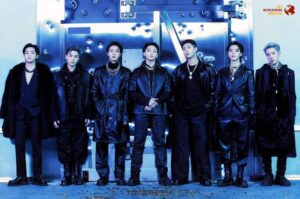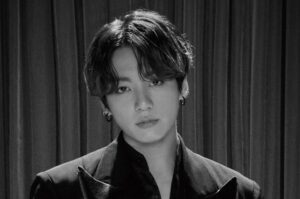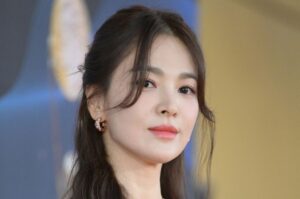BTS’ Jimin shared his experience with ‘Rolling Stone’

BTS’ Jimin: ‘Rolling Stone’ Digital Cover Story – Rolling Stone
BTS’ Jimin identifies himself as “introverted,” which could come as a surprise to someone who has seen his incredibly expressive dance, or the moment he leans back and nails a significant note in, say, “Magic Store.” Jimin discussed his perfectionist streak, his experience of the pandemic yr, his love of dancing, and extra in the subsequent of Rolling Stone’s breakout interviews with all seven members of BTS. He delivered his lengthy, considerate responses from a studio room in his label’s Seoul offices, dressed in a zipped-up black winter coat with a white fake-fur collar, a large black bucket hat, and a white mask to protect a translator.
Any fans believe you’re working on a mixtape. Is this correct?
To be perfectly honest, there is nothing that is completely ready or prepared. I’m doing new things and pushing myself with new challenges. However, there is nothing specific or ready to go.
You had the support of the army for around 7 years. You faced silence in the previous calendar year due to the pandemic. How have you used to that?
Nonetheless, I have a series of negative feelings about the situation. You remember, “How did we get into this situation?” “What are we doing?” you might ask. And I didn’t want to embrace, admit, or face the fact that we can’t see our mates and can’t do the things we’d been doing for the previous seven decades, as you stated.
What have you learned about yourself in the last year, in your time away from the streets?
I realized that we had been asking people to really love themselves and to be more strong. This year, I began informing myself of these points and reminding myself that this is still something I can keep in mind. I have realized that there were times when I was being way too tense with people who were close to me. And I imagined that I needed to go back to the way I was, to realign my gears, so to speak, so that I could return to being the human being that I used to be in terms of how I treat others around me and how I treat myself. Now, I see men and women respond favorably to even small positive changes.
What made you want to dance when you were younger, and how did you realize you had a talent for it?
First and foremost, I never imagined that I was a great dancer. But I began to like dancing when I was younger. My friends suggested that we go learn to dance as an after-college activity. I started to enjoy it a lot more when I did more of it, and I began taking a lot more classes.
And I gradually became more and more immersed in it. And I realized when I started to learn how to dance, that I didn’t feel any anxiety while I was dancing. It was my own space where I could escape to a different world where I didn’t have to think about anything else. It could be something I wanted to get my hands on. And it made me feel completely free, it made me very happy. And still, even after I made my debut, and I still have those feelings and ideas, dancing is the only solution.
Who were some of your early musical idols?
There were many artists who inspired me. Foreign artists include Michael Jackson and Usher, as well as a slew of Korean artists. However, watching the other customers perform their duties provided me with a lot of musical inspiration.
I understand why you hate causing problems. But couldn’t that make you a little harsh on yourself?
Since I first made my debut, I had the shortest amount of training time. And I don’t think I was fully prepared and optimistic when we made our debut. Nonetheless, I am not without flaws. I’m generally moved by supporters who dedicate themselves — their attention, their emotions, their whole self — to appreciating and enjoying what I do.
It would make me believe like I can not make mistakes for their sake and for their loyalty. So, if you’re curious how I learn to be gentler on myself or more forgiving to myself, I believe that’s going to be a challenge for me purely because of how I feel. When other people pointed out areas that I needed to do better, it used to make me really mad with myself. Now I really appreciate it when people point out topics that need a lot of attention. It makes me want to experiment with more robust materials.
You were Be’s project coordinator. What did you learn as a result of the experience?
What I took away is, first and foremost, how open the associates were about making the album and earning the new songs. The development of songs takes a significant amount of time and effort. What I really took away from it is that I need to dedicate this amount of time and attention to creating and writing songs, as well as attempting to create good audio. What the associates contributed to the method and how we all worked on the album had a big impact on me.
I like the song “Serendipity” from 2017. You highest power yourself as a singer on that one. Could you please share your memories of capturing it?
I believe this was the first time I wanted to highlight all of the complexities of my voice and concentrate on each depth of my vocal language. As a result, it was incredibly difficult to attempt to make constructive that reflected into the video. And I only remember the recording method being very complicated right now because of how difficult I played with to ensure that I focused on all of these things, making certain that they are reflected in the track.
You’ve all stated multiple times that there have been differences among people that you’ve resolved over the years. Can you go into more detail on those differences?
[Laughter] There was so much of it that I couldn’t really record it all. We all had distinct identities, personalities that clashed with one another. And, for example, I might consider myself to be a little slower, more contemplative, or much more introverted. Other people, on the other hand, need problems to be resolved even more quickly.
They are much more active and outgoing. Then there are the guys who are much more introverted and sluggish than I am. As a result, these personalities continue to collide. I believe we’ve all come to believe that it’s okay to have these disparities, that some people are going to be slow and others are going to be quick. We have to be patient from time to time. We sometimes need to communicate with extraneous feelings. I believe we all designed an interpretation of each other.
Will you want to be in BTS when you’re 40 years old?
I don’t think I’ve ever considered not being a part of this band. I really can’t imagine what I’d do on my own, what I’d do without the team. And when we debuted, my goal was to continue to work with these men and women, to continue to sing with these people today. I imagine that as I get older and grow my own beard when I’m too old to perform, I’d just like to sit on stage with the other people and sing and chat with the audience. And converse with the fans. That, too, I imagine would be beneficial. But I’d like to keep this heading as long as I possibly can.







